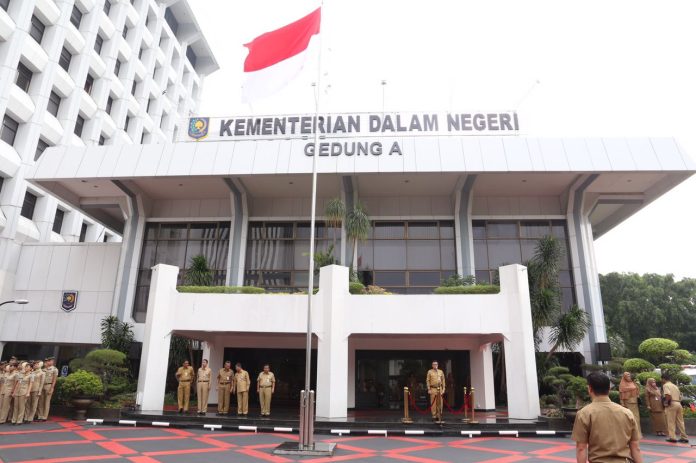JAKARTA – Revision of the Regional Autonomy Law No. 23 of 2014 has all regional heads questioning it. They wonder when the law will be passed because, according to them, it is a door for them to exercise their authority.
Revision of the Regional Autonomy Law (OTDA) No. 23 of 2014, is it really important?
The Head of Information Center of the Ministry of Home Affairs Benni Irwan said that, in particular, there was a reason given by the leader of this country, who was represented by Vice President Maaruf Amin.
Benni said the government asked each regional head to maximize their public services.
“That was the main message conveyed by the Vice President,” said Benni to The Editor.
Is the OTDA Revision the Real Answer?
Benni said, the main purpose of the OTDA is to optimize public services.
Therefore, regional leaders who have a strong commitment are needed to develop their territory.
“With this OTDA, the authority of regional heads will be clearer,” said Benni.
Water issues, for example. Several regional heads, including Makassar Mayor Danny Pomanto, also reminded of the importance of authority in solving floods in Makassar.
“Water will be very beneficial for the people who stay around the river,” he said.
However, such a dream, said Benni, needs to be realized by many parties, especially the heads who are innovative.
“Regional heads are needed to collaborate and be collaborative together,” he said.
Benni said, there is not a single regional head who is able to solve problems in their respective regions.
“So during this OTDA period, regional administrators must also participate, the heads can not work alone. The geographic boundaries only exist on the map, but in reality this is not the case,” he said.
Is there any regional head who is disturbed by the OTDA?
Benni said that without any revisions, the 2023 OTDA would be difficult for regional heads at all levels due to their limited authority.
However, he asked regional heads to be more innovative and creative in order to develop their potential territory.
He gave an example of a highway. Village road repairs will be the responsibility of the village government, provincial roads must be repaired by the provincial government, and roads will be repaired by the central government.
Local Governments Must Be Creative Even Though the OTDA Revision Has Not Yet Finished
Benni said that the revision of the Regional Autonomy Law (OTDA) No. 23 of 2014 will certainly not be completed and the hammer will be hammered out this year.
However, he asked regional heads to always be humble and down to earth.
With Indonesia’s natural wealth located in their respective regions, they have to look for new innovations to process it.
What Makes Regional Heads Want the 2023 OTDA Revision to Be Done Immediately?
“This is just a matter of division of authority,” said Benni.
“(It’s fine) as long as it’s clear–because regional heads cannot work on parts that are not their territory,” he added.
To solve such problems, Benni asked them to negotiate to find a way out.
Political Constellation Hinders The Development
Political constellations sometimes hinder development at the level of provinces, districts, and even villages.
And, according to Benni’s narrative, such things happen massively and are commonplace.
And apparently, the difference in flags between provinces and districts influence development in the country.
Benni said the Ministry of Home Affairs is encouraging regional heads to do the coordination meetings so that problems in their respective areas can be finished.
“The spirit of regional autonomy is a way to find creative officials,” concluded Benni.
The Mayor of Makassar Supports the 2014 OTDA Revision
Makassar Mayor Moh Ramdhan Pomanto believes that the government has received many benefits from regional autonomy.
Even so, Danny Pomanto does not deny that there are still many problems, especially concurrent government or the transfer of delegation of authority from the center to the regions.
“Like the authorization regarding drainage, which causes us to point fingers at each other when a flood occurs. There is an authorization for the city and the province. The water flows without authority, so a formula regarding this matter is needed,” said Danny Pomanto as quoted from the Guidelines Media on Friday (14/5).
Another example is the garbage scattered in the sea while the beach is no longer authorized by the city government.
“The same goes for roads. Streets are authorized by different governments. But the community only knows they want a smooth road from end to end,” he said.
Therefore, he hopes that through this national seminar, critical studies will emerge so that problems in the regions can be solved together.




